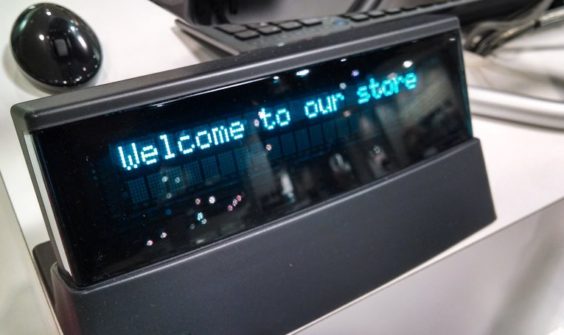
Hardcore extreme couponers don’t exactly have the best reputation, thanks to the actions of a few. You’ve probably heard – or witnessed – horror stories, in which angry couponers argue with cashiers to get their way. And sometimes those arguments can get pretty heated.
Now, you may be chagrined to learn, that if things get really, really heated – like name-calling and obscenity-screaming kind of heated – a court says that’s perfectly okay. It’s not a crime, a panel of judges ruled, it’s just free speech.
The case stemmed from a 2013 incident at a Stop & Shop grocery store in Vernon, Connecticut. While the incident in question didn’t involve coupons, the ruling could be construed to cover just about any cashier-customer disagreement.
In this particular incident, shopper Nina Baccala was arrested after unleashing a profane tirade against a Stop & Shop manager. She “urgently needed money for a trip she was intending to take that night,” her attorneys explained. But she arrived at the store an hour after they stopped doing Western Union transfers.
And Baccala was not happy about that. “She was calling me every name in the book – ‘fat ugly b****, c***, f*** you, you’re not a manager’,” the manager testified.
The manager responded with “Have a good night,” and Baccala left. She then telephoned the store, and the employee who answered testified that Baccala said “a bunch of vulgarness” and that she “was told to come outside, that there was a gun outside for me.”
Baccala was arrested and convicted of breaching the peace, under a Connecticut state law that says a person is guilty if he or she “in a public place, uses abusive or obscene language or makes an obscene gesture” with “intent to cause inconvenience, annoyance or alarm”. She was sentenced to 25 days in prison.
And then she appealed.
Her appeal cited the “fighting words exception” under the First Amendment, which holds that a person can only be convicted for speech that is “likely to create an imminent risk of violence”. It was precisely because the manager kept her cool, Baccala argued, that her conviction should be overturned. “To sustain Baccala’s conviction requires the Court to presume that a reasonable person, on duty as a Stop & Shop employee, would likely be induced to a blind rage of violent aggression against Baccala,” her appeal stated.
And earlier this month, the state Supreme Court found in Baccala’s favor and overturned her conviction.
“Uttering a cruel or offensive word is not a crime unless it would tend to provoke a reasonable person… to immediately retaliate with violence,” the court found. While Baccala’s words were “extremely offensive and meant to personally demean” the manager, “store managers are routinely confronted by disappointed, frustrated customers who express themselves in angry terms, although not always as crude as those used by the defendant. People in authoritative positions of management and control are expected to diffuse hostile situations.”
So the next time a cashier won’t take your coupons? Cuss them out! Call them names! It appears the law is on your side.
While champions of free speech are applauding the decision, there’s a real concern that it could lead to an unfortunate coursening of grocery store discourse. If it’s indeed only a crime if the target of verbal abuse fights back, might cashiers now take a swing at an angry customer, in order to be able to press charges against them?
The state plans to appeal the decision to the U.S. Supreme Court. So if the ruling has emboldened any argumentative couponers to amp up their aggression, they’d better hold their fire. It seems the final word on this case hasn’t been written just yet.











Don’t press charges AT ALL. She isn’t doing anything wrong to you, sure it sucks but it’s not a crime. Instead of pressing charges, just get her out of your store. Or ban her. You don’t need to go to court just because someone called you a bitch.
Retail sucks, but that gives you no right to ARREST someone for saying words that are from anger and not violence. If she doesn’t hurt you, then you have nothing to press charges for.